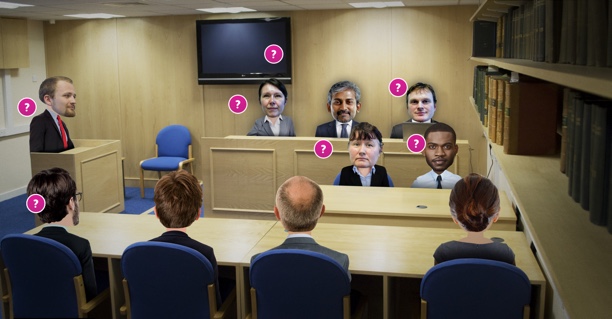This page will take 10 mins to read
What type of court will I have to go to?
There are three main types of courtrooms in the UK. All criminal cases start in a magistrates’ court:
Magistrates’ court
All criminal cases start in a magistrates’ court.
Cases are heard by either:
- 2 or 3 magistrates
- A district judge
- There isn’t a jury in a magistrates’ court.
Cases a magistrates’ court deals with:
A magistrates’ court normally handles cases known as ‘summary offences’, for example
- Most motoring offences
- Minor criminal damage
- Being drunk and disorderly
- It can also deal with some of the more serious offences, eg: burglary and drugs offences
These are called ‘either way’ offences and can be heard either in a magistrates’ court or a Crown Court.
Magistrates’ courts always pass the most serious crimes to the Crown Court, e.g., murder
Rape and robbery.
These are known as ‘indictable offences’. In some cases, the magistrates court decides if you should be: kept in custody – eg a police or court cell, granted ‘bail’, and let out on strict conditions – e.g. to keep away from named places or people.
This may happen if: another court hearing is needed, the court needs more information before passing sentence, your case is passed to the Crown Court for trial or sentencing
A magistrates’ court can give punishments including:
- Up to 6 months in prison (or up to 12 months in total for more than one offence)
- A fine of up to £5,000
- A community sentence, like doing unpaid work in the community
- Courts can also give a combination of punishments – e.g. a fine and unpaid work in the community.
- If the court decides your sentence should be for longer than 6 months, it can pass your case to the Crown Court for sentencing.
Crown Court
A Crown Court deals with serious criminal cases, for example;
- Murder
- Rape
- Robbery
It also deals with:
- Appeals against a magistrates’ court conviction or sentence
- Cases passed from a magistrates’ court for trial or sentencing
You can see what cases a court is hearing each day and check their progress on the court lists.
Who does what in the Crown Court?
- Normally has a jury – which decides if you’re guilty or not
- Has a judge – who decides what sentence you get
- Your solicitor (if you have one) can explain what happens in court – the judge and court staff will also give instructions about the trial.
- Sentences a Crown Court can give
- A Crown Court can give a range of sentences including: community sentences or prison sentences – including life sentences
Youth courts
A youth court is a special type of magistrates’ court for people aged between 10 and 17.
A youth court has either:
- 3 magistrates
- A district judge
- There isn’t a jury in a youth court.Your parent or guardian must come with you:
- If you’re under 16
- If you’re 16 to 17 and they’re given a court order
How youth courts are different from adult courts
Youth courts are less formal than adult courts, for example members of the public are not allowed in to the court (unless they get permission) and you are called by your first name.
Types of cases a youth court deals with
- Theft and burglary
- Anti-social behaviour
- Drugs offences
For serious crimes, like murder or rape, the case starts in the youth court but will be passed to a Crown Court.
The Youth court can give a range of sentences including: community sentences and Detention and Training Orders carried out in secure centres for young people
Last modified 22nd November 2016


Interactive Courtroom
This is a place for you to explore. You can find out who's who in court, test out the extra help you can get and see what court looks like.
Northamptonshire Court Finder
Search here to find the most suitable court or tribunal in Northamptonshire



 Completed Section
Completed Section  Current Section
Current Section  Not Started Section
Not Started Section
 Swipe to view stages
Swipe to view stages
 Reporting a crime
Reporting a crime The Police Investigation
The Police Investigation Going to court
Going to court After sentencing
After sentencing Support after sentencing
Support after sentencing
